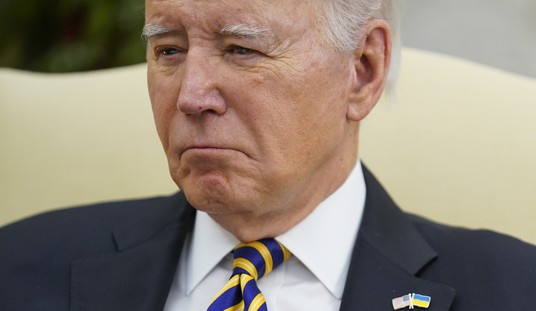Syrian President Bashar Assad is offering amnesty to a subset of those who’ve defied his regime so far. Ba’ath party officials expressed a willingness to speak to the opposition but have so far refused to remove a key provision in the constitution enshrines the Ba’ath party as the leader of the state. Syrian dissidents say the offer is a “sign of weakness” and administration spokesmen said the concessions were too limited to be serious. These concessions came even as Syrian tanks and artillery continued to shell dissident areas.
The Arab Spring scrambled the regional political scene and once again renewed the competition for power in each country. It has thawed out many political trends which have been in hibernation for decades. This includes not only the Muslim Brotherhood, which was an ally of Nasser in the early 50s, but even older forms. One group that has been reconstituted in the post-Mubarak era are the Egyptian Nazis. The Strategy Page writes:
during World War II, the Nazis were very popular in the Arab world. The Grand Mufti of Jerusalem (the highest Islamic official in the area) spent the war in Berlin (to avoid arrest by the British). Iraq, which had become independent during the 1930s, declared itself a German ally in 1941 (and was promptly invaded and re-conquered by three British divisions, before the Germans could get many troops into the territory of their new ally). After World War II, the Arab language media continued Nazi-grade anti-Semitism. The Arabs had enough sense to tone down this race hatred, and pro-Nazi talk, in their English language media.
But it’s not just the Arabs. In occupied Albania, during World War II, local Moslems were recruited into SS divisions, whose task was to hunt down and kill Christian guerillas. There was no shortage of volunteers. The pro-Iranian Shia group in Lebanon, Hezbollah, use the Nazi straight arm salute as their own, and senior officials in Iran constantly talk admiringly of Hitler and the Nazis.
Being a Nazi and being pro-Japanese was a way of being anti-British in during the 1930s. The Indian nationalist Subas Chandra Bose, for example, traveled “to the Soviet Union, Nazi Germany and Imperial Japan, seeking an alliance with each of them to attack the British government in India. With Imperial Japanese assistance, he re-organised and later led the Azad Hind Fauj or Indian National Army (INA), formed with Indian prisoners-of-war and plantation workers from British Malaya, Singapore, and other parts of Southeast Asia, against British forces.”
The Muslim Brotherhood itself, involved as it was in the campaign to rid Egypt of the British, could not but help contact Berlin. “Underground links to the German Government began during the 1930s and were close during the Second World War, involving agitation against the British, Jewish immigration to Palestine, espionage and sabotage, as well as support for militant activities orchestrated by Haj Amin el-Hussaini in British Mandate Palestine, as a wide range of declassified documents from the British, American and Nazi German governmental archives, as well as from personal accounts and memoirs from that period, confirm. Reflecting this connection the Muslim Brotherhood also disseminated Hitler’s Mein Kampf and The Protocols of the Elders of Zion widely in Arab translations, helping to deepen and extend already existing hostile views about Jews and secular Western societies generally.”
Artemio Ricarte played a nearly similar role in the Philippines. He was a general in the Philippine-American war who never gave over his allegiance to the United States. He established himself in exile in Japan and during the war, returned to recruit soldiers for the Japanese Army. But time had passed him by and during his exile, public opinion had identified with the United States. He died, old and infirm, with Yamashita’s forces in the Cordilleras pursued by American and ironically — Filipino forces. My mother distinctly remembers Ricarte’s daughter coming to her elementary school class, dressed in riding breeches and boots — a costume straight out of Fascist central casting — to describe the bright future under Japan. Ricarte, like Bose, is an ambivalent figure. They were part of a movement that cannot wholly be repudiated and yet was at the last opposed by mainstream of historical events.
After the allied victory it was easy to forget how many prominent politicians in Western Europe and even the United States — President Kennedy’s father Joseph being one — felt a kind of sympathy for the Nazi cause. But in the aftermath of World War 2 the political system processed them out or at least discredited their opinions. In the Middle East such opinions were driven underground, frozen in political ice, as it were. One of the dangers of maintaining strongmen is that they distort the process of political memory management. Many so-called Liberation Movements in the Third World are nothing but 1930s Communist ideologies preserved in the icy atmosphere of the Juntas. If Communism could remain in suspended animation in parts of the Third World, as seen to this day, why can’t Nazism experience an analogous process?
The Arab Spring is now thawing these dinosaurs out. That should have been expected. Democracy is not a state, but a process; not a good unto itself, but a means to a good insofar as it promotes rational debate under free speech and protects choice. Democracy can take you to heaven, but only if you want to go there. If you prefer hell, it will take you there too. With the collapse of the old-line tyrants in the Middle East, new and old ideas are emerging once again. In the Philippines at least, the removal of Marcos stripped the romantic luster from Communism. Its adherents became ordinary politicians and fell to earth.
Perhaps the greatest danger in the Arab Spring is that the memory management process should proceed only halfway; that one tyrannical ideology should be exchanged for another, without all tyrannies burning equally in the pyre of freedom. In that case, could the passions which convulsed the world seventy years ago make a return? Might ideas long thought extinct once again stalk the streets? Who knows the answer? That’s what the future’s for.









Join the conversation as a VIP Member